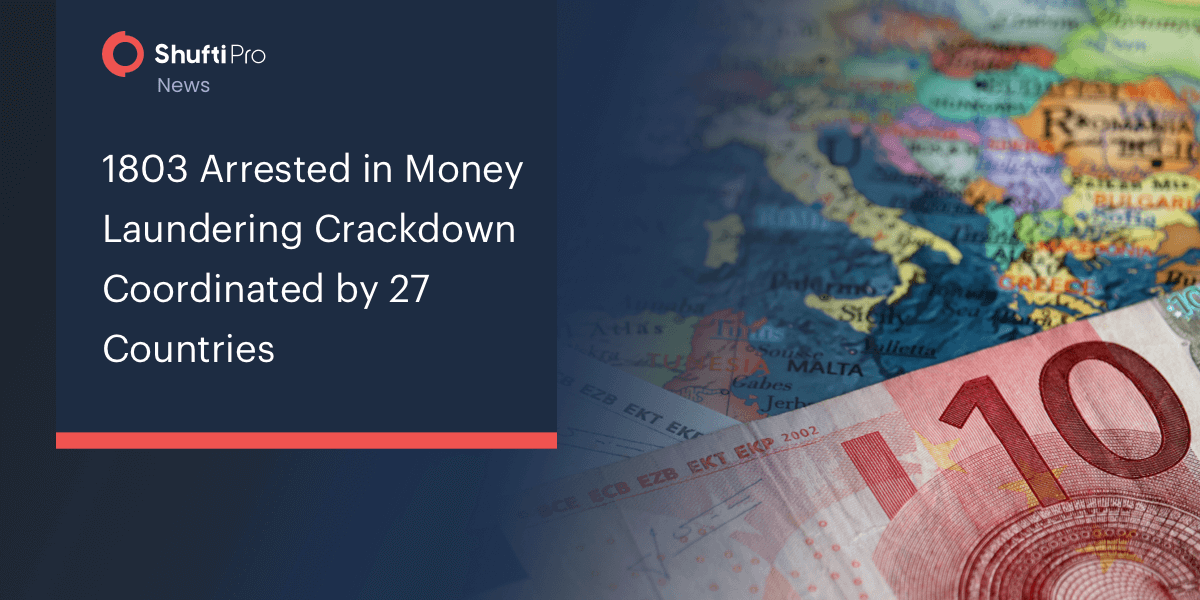1803 Arrested in Money Laundering Crackdown Coordinated by 27 Countries

In a major money laundering crackdown, European police identified more than 18,000 money mules, arresting a total of 1803 individuals.
On December 1, the seventh European Money Mule Action (EMMA 7) concluded after two and a half months. 27 countries were involved in this initiative along with Europol, Eurojust, the European Banking Federation (EBF), the FinTech FinCrime Exchange, and major companies from the private sector including Microsoft, Western Union, and Fourth line.
The EMMA has been operational since 2016 and the purpose of this initiative was not only to identify money launderers but also the sources of their illicit gains.
According to Europol, the EMMA initiative is the biggest international operation of its kind, where 400 banks successfully reported 7000 fraudulent transactions. As a result, losses counting up to €70m ($79m) were prevented and 324 recruiters were identified.
Europol also claims that money mules are used for money laundering and a variety of online scams, including e-commerce fraud, phishing, SIM-swapping, and man-in-the-middle attacks. These claims are based on the leads that came in from police intelligence and private-sector reports.
Immigrants, students, and those in difficult financial situations are often targeted by giving the hope of easy money. They are approached through various methods including job adverts on social media.
Fraud experts and police issued warnings of an increase in the recruitment of money mules in the pre-pandemic time. A spike was seen in these scams when many lost their jobs during the COVID outbreak.
Recruitment of money mules and the subsequent crimes have called for the police to run regular awareness campaigns like Europol’s “Don’t be a mule” initiative.
Suggested read: Money Laundering Ring Pushed $4bn through 60 HSBC Accounts within 2 Years

 Explore Now
Explore Now













